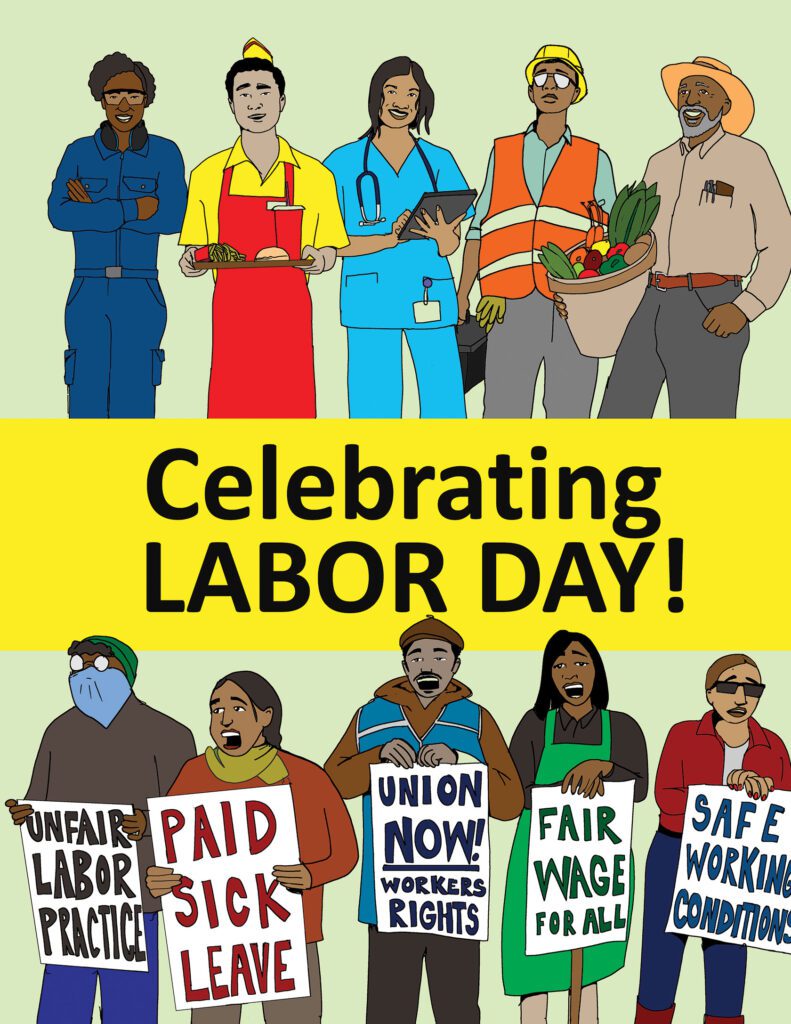
As we look back at this year’s celebration of Labor Day, we must not forget the significant role that our community has played in the fight for labor rights. This holiday serves as a reminder of the long and ongoing struggle for labor rights and civil rights. The labor movement has historically helped advance the rights and dignity of Black workers. Some economists trace the development of a broad Black middle class to the good wages and benefits and rock-solid job security that the United Auto Workers once won for the diverse workforce in car plants in Detroit, St. Louis and other cities.
From the very beginning, Black workers were instrumental in the development of the country’s economy during slavery, cultivating major commodities like tobacco and cotton. The knowledge of enslaved workers from the Senegambia region of West Africa made possible the cultivation of rice that became known as “Carolina Gold” because it was so profitable. After Emancipation, Black Americans have provided the labor to build roads, cities, housing and even more importantly, the industries that built and financed our country’s prosperity since World War II.
From early in the 20th century, as labor rights groups formed to create unions, alliances were struck with civil rights organizations. Together, they fought for Americans to have safe jobs with a fair livable wage. Unions, to cite a visible example, had a presence at the 1963 March on Washington for Jobs and Freedom.
Labor Day recalls leaders like A. Philip Randolph and Bayard Rustin, who were prominent figures in both the labor and civil rights movements. Randolph, leader of the Brotherhood of Sleeping Car Porters, first proposed staging a March on Washington during World War II. Rustin was instrumental in organizing the mass demonstration when it finally happened. Both championed the cause of equal rights in employment and beyond, creating safe jobs, higher wages and more stable communities.
As we consider the current labor climate, it is sad to see how many unions and work support groups have been dismantled, and how many major corporations today do all that they can to make sure that no unions are formed to represent their employees. Most recently, Amazon and Starbucks are two of the most well-known companies that have done everything they can to stop unionization within their ranks. That is a shame because if it weren’t for unions, Americans workers would be still fighting for a five-day work week and a livable pay scale. We must not take that basic foundation for granted.
We must shout it from the mailrooms and back rooms to the boardrooms: America will not thrive without strong labor unions bargaining for wages, benefits and working conditions. We must celebrate the progress that has been made in terms of workplace equality and the fight against racial discrimination in employment.
Black workers have achieved significant milestones, but challenges persist. This holiday represents a sense of solidarity among workers of all backgrounds. The labor movement has historically brought together people of diverse backgrounds and cultures to stand together and fight to make America a better place for all. Minimizing workers’ rights, busting unions and diminishing labor’s power only minimizes our country greatness and success.
Let’s remember how we secured the workplace rights we have now and that we are so casually allowing to slip away. Right here and right now, we must stand together and continue to fight for workers’ rights. United we stand; divided we fall. It not a hard concept to understand —we’ve all heard it before. But apparently too many in business and government have forgotten this important concept. Let’s all remind them that we are not going to stay and watch attempts to turn the nation’s clock back and undo the progress our country has made.







